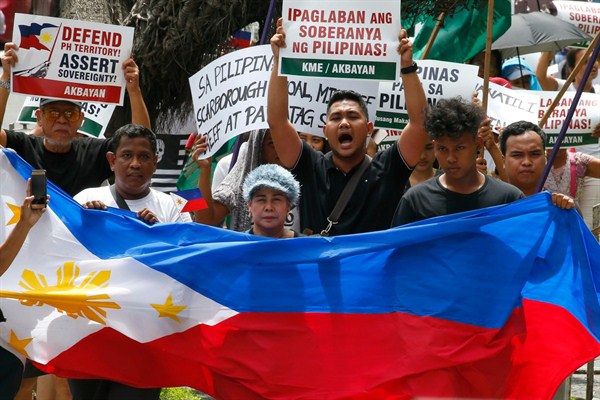Philippine President Rodrigo Duterte’s time in office has shown how a charismatic, populist leader can recalibrate a country’s foreign policy almost single-handedly. Under his watch, the Philippines has pursued an “independent” foreign policy, one that is less hostile to China and less dependent on the United States, the Philippines’ sole treaty ally and former colonizer. As a result, the Philippines’ relations with China have entered a new “golden age,” in Duterte’s words.
At the same time, his popularity does not give him unilateral power over the Philippines’ foreign and defense policy—at least not yet. His aggressive push to reorient Philippine foreign policy has been met with stiff resistance at home, especially from the defense establishment and pundit class, which remain wary of China. Indeed, the policymaking landscape remains highly contested, with the president constantly having to incorporate the views of other veto-wielders within the Philippine elite.
“I will be chartering a [new] course [for the Philippines] on its own and will not be dependent on the United States,” Duterte declared shortly after his landslide electoral victory in 2016. True to his word, in the two years since then, Duterte has rapidly transformed the Philippines from one of China’s most vocal critics in Asia to one of its most eager partners. Meanwhile, bilateral relations with the U.S. have reached new lows, as Duterte has questioned the foundations of a century-old alliance amid mounting disagreements over human rights and democracy issues.

